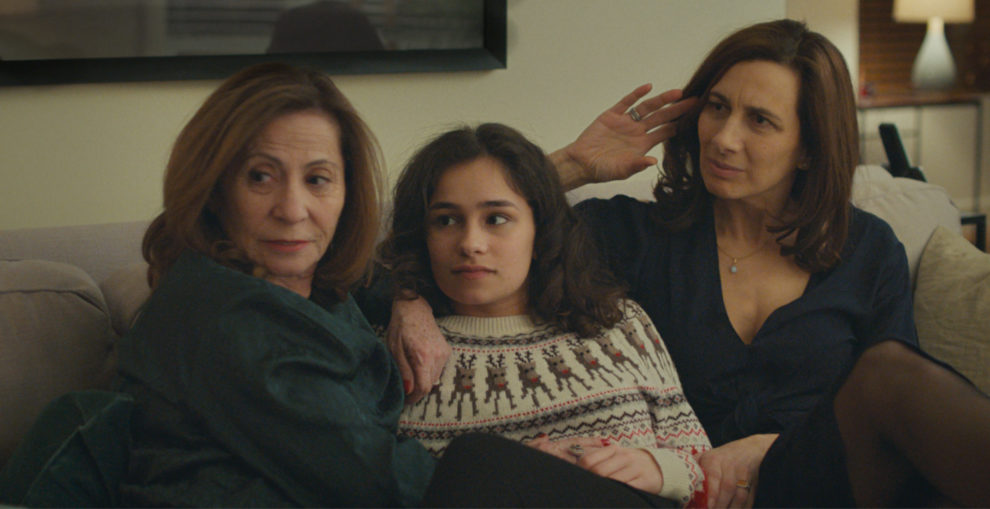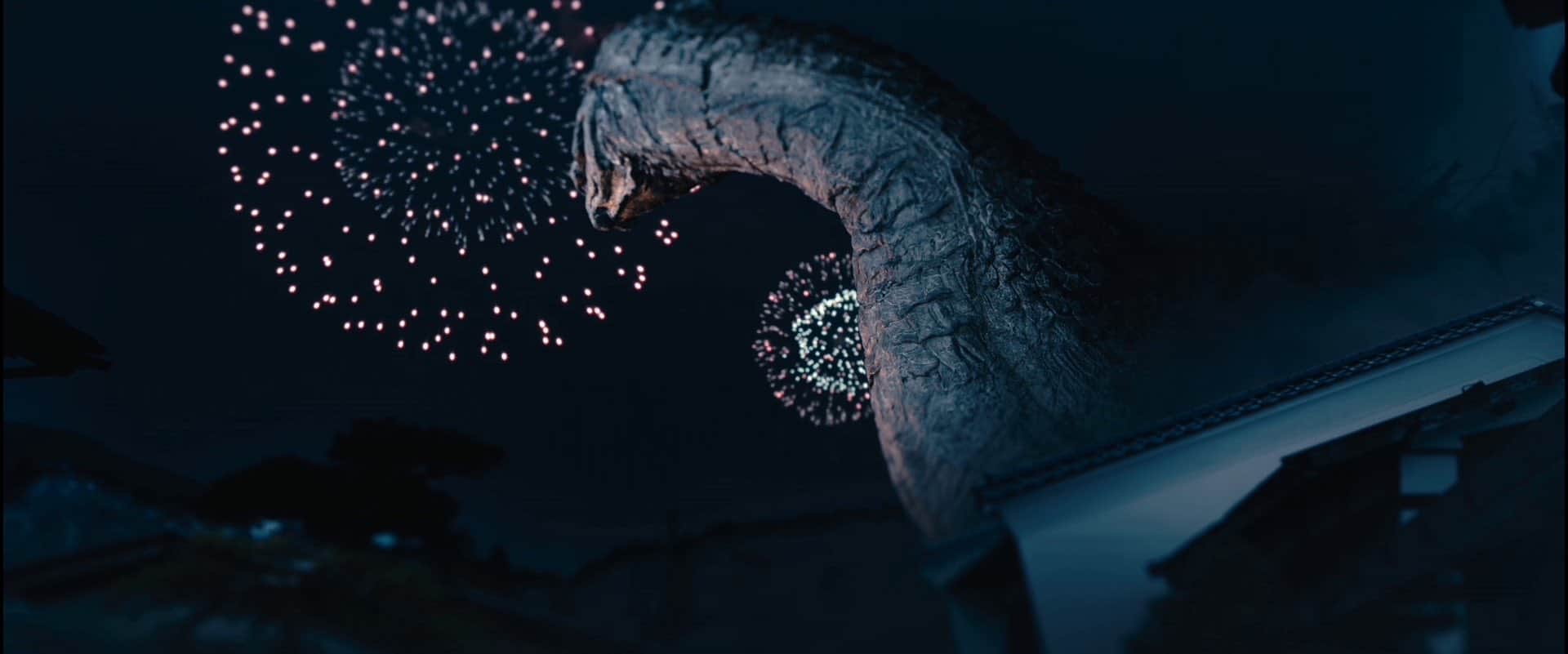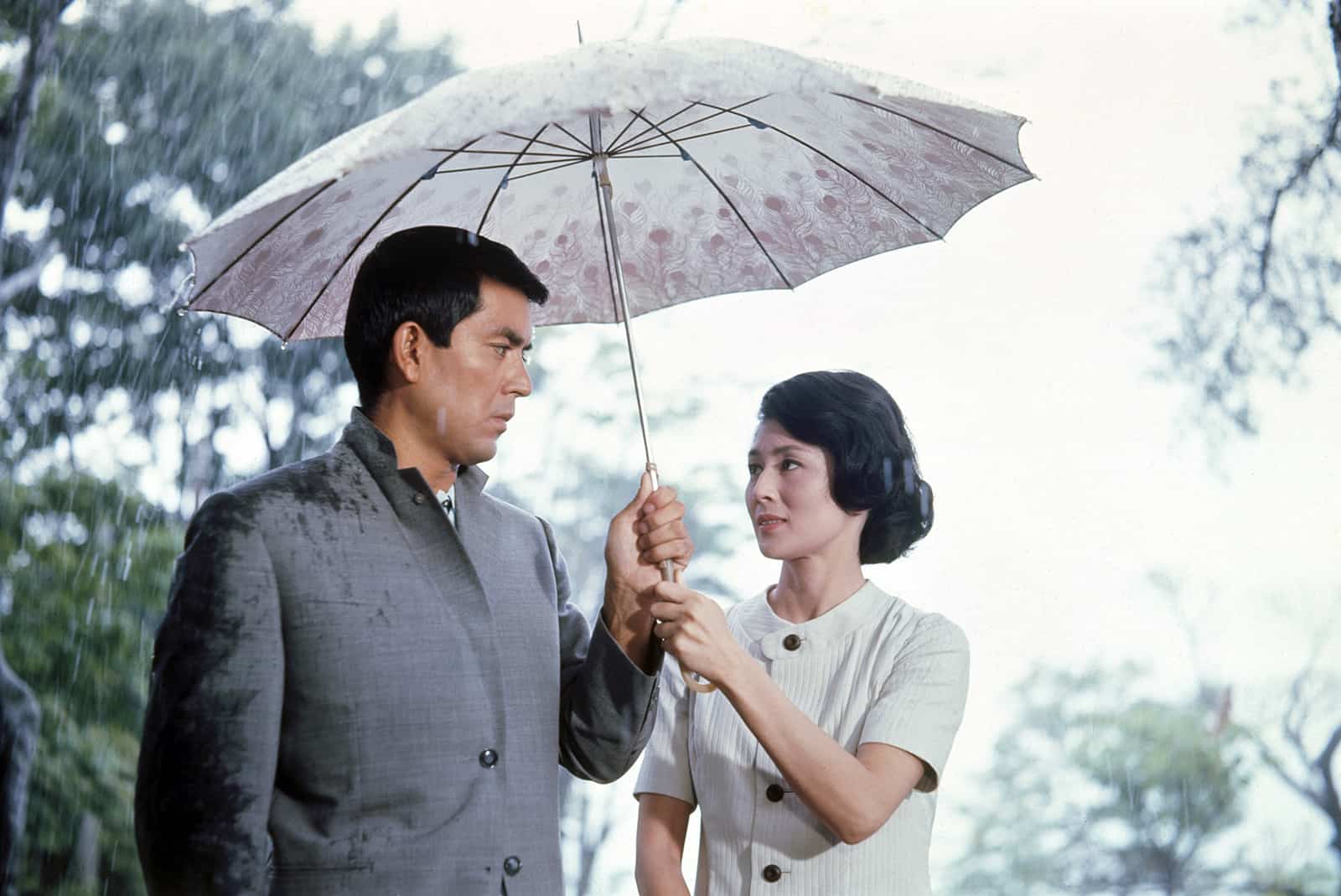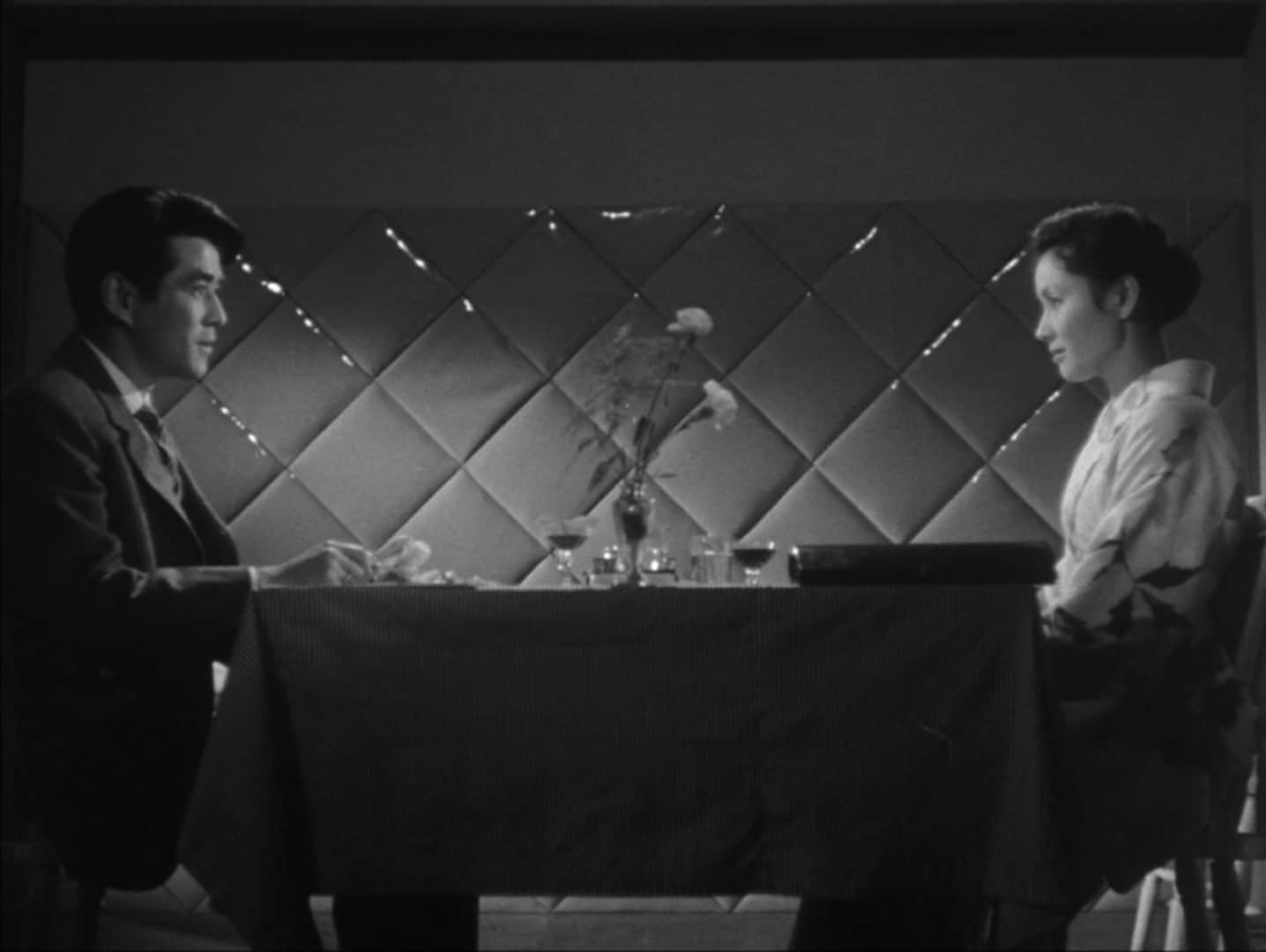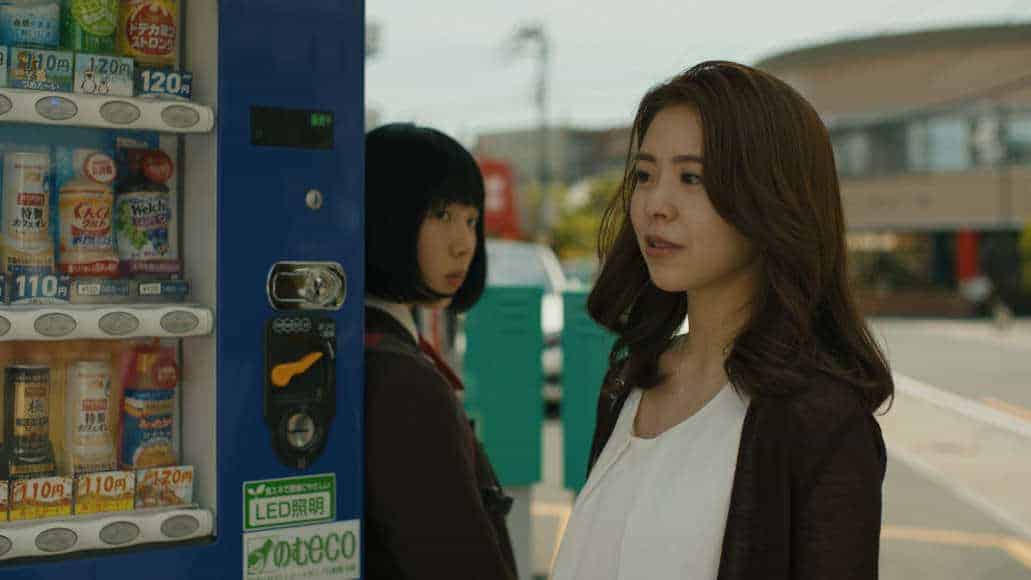Loosely adapted from co-director Joana Hadjithomas' teenage letters and diaries “Memory Box” is an imaginative multimedia ensemble that magically brings to life memories of Life in Beirut in the 80s during part of the Civil War and at the same time, tells a cathartic story of acceptance across three generations of women.
“Memory Box” is screening at the BFI London Film Festival

Alex (Paloma Vauthier) is an ordinary teenager of divorced parents. She is second generation Lebanese, born in Canada many years after her mum and grandmother fled Lebanon in 1987 due to the tragic death of Alex's grandfather. But the girl has always been sheltered from the family history in Beirut and the years of the war, the mum Maia (Rim Turki) and even more her teta (“Granny” in Lebanese, played by Clemence Sabbagh) never talked to her about the past. One day just before Christmas Eve, while Alex and teta are preparing celebration food, a big box arrives by courier from France. It has been sent to Maia by the parents of Liza, her best friend from 1980's Beirut, after her recent death, and contains a collection of diaries, scrapbooks, pictures that Maia had sent to her friend when she had moved to France, to keep her updated about life back in Beirut.
Teta, in an ultimate attempt to bury once again the past, hides the box, but Maia eventually finds it on Christmas day. She is very shaken by the resurfacing of all those memories and still reluctant to face her past. Repeating her mum's pattern of behaviour, she forbids Alex to touch them, but – of course – the girl finds a way to poke her nose into her mum's things and secretly engages in a virtual journey into the years of her mum's teens, during the Civil War, helped by the tons of pictures, diaries, cassette tapes and artifacts in the memory box. She starts to materialise her teenager mum (Manal Issa) and her friends through the pictures she finds, which – with a clever concoction of visual effect and editing – move at first like a one-stop animation and then smoothly turn into flashbacks. Alex gets to know for the first time her mum's life in Beirut, her friends, her dreams, her passion for photography that Alex had never known, and her first boyfriend Raja (Hassan Akil). But going through the diaries, as the Civil War intensifies and Maia gets gradually demotivated and lost, other darker aspects of those years start to emerge, and secrets and lies come to the surface.
Joana Hadjithomas and Khalil Joreige have created an appealing formula to narrate a particle of Lebanese history through the double gaze of two young women, Alex, and the teenage version of her mum Maia. The Civil War is filtered through the eyes of ordinary people dealing with tragic circumstances and the story unravels in front of us using a defined and personal point-of-view. In fact, the film avoids dwelling into political and historical details and chooses to portray the consequences of that historical moment on Maia, teta and – indirectly – on Alex too. What really emerges is a multi-generational and very matriarchal storytelling. The dynamics and the trust between the three women have been compromised as a result of an un-processed trauma and a wall of silent has been built around the past with the noble intent of sheltering the loved ones from pain, but obtaining an opposite result. Talking about the past and facing it is the only possible catharsis for the characters but also a reminder of the relevance of historical and national memory as remarked also by the tragic characters of Maia's father, a school principal who believed in education as a way to change things, but forever hunted by his son's murder.
Also interesting is the way the film opposes the very different set of media that Maia and Alex use to share their experiences with their friends. In parallel tracks we see smartphone pictures, social media, messaging apps, and on the other side diaries, cassette tapes, letters. Human drives and need for sharing are the same across generations, what change are just technicalities.
It wouldn't have been possible to create such an immersive experience without the excellent coordinated work of the art department, cinematography, costume, music and editing. Too many to name them but too good not to mention! On one side there is an ingenious mix of techniques to give life to all the artifacts in the box. One-stop animation of the reels of the numerous pictures and proof prints of the keen photographer young Maia, characters walking out of the pictures' background, explosions coming to life like film burns on the pictures, all this in a seamless and gradual crescendo to fully developed flashbacks. This approach truly and effectively sucks you inside Maia's life, mirroring the experience that Alex is having rummaging through the box.
On the other side though, there is the incredibly accurate reconstruction that the production design has done to reproduce all the details of 80's Beirut life. The diaries, the photo paper (I could recognise some typical print formats in fashion at the time) the scratch-scented stickers, the Philips tape recorder, the wallpaper, newspaper cut-outs, cinema and concert tickets, Italy-Brazil World Cup 1982 celebrations, reels of pictures, super8 films and the hunting pictures and real footage of the devastation of the war and the ghostly, gutted buildings of Beirut. All these fragments plus the understated and never over-the-top accuracy of the costumes, hairstyles, and music selection concur to create an enveloping nostalgia trip. Cinematography joins the teamwork creating very different moods, from the cold and contemporary Canada setting to the grainy warm – claustrophobic at times – Beirut in the 80's and finally the modern Lebanon with its clean bright and positive light.
Acting must be mentioned as it is another strong point of “Memory Box”. All the actress performing the different stages and ages of Alex, teta, and Maia are excellent, passionate and natural, but above all Rim Turki (contemporary Maia) is truly outstanding, portraying the woman's deeply painful process of facing repressed grief and feelings and finally accepting them. Sincerely moving.
With its scrapbook-style storytelling, “Memory Box” achieves the result of delivering a deeply personal project but at the same time a relatable and engaging cinematic experience.


